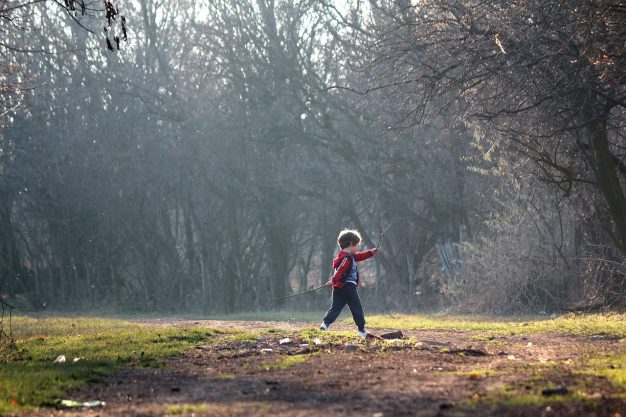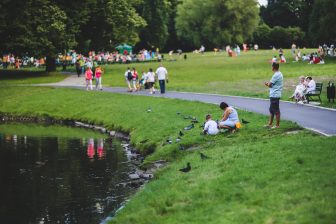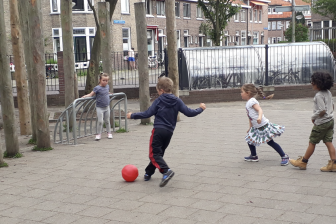
Canadian children get a D-minus in annual active report card
For the last 10 years in Canada, a Report Card on physical activity for children and youth has been released. In 2015, for the first time, the Report Card took a stand on play in nature and the outdoors—including the risk of outdoor play—and included a Position Statement on Active Outdoor Play. The 2015 Report Card gave Canadian children a ‘D’ for overall physical activity. It was clearly time to take a stand on outdoor and risky active play.
ParticipACTION
Active Healthy Kids Canada developed the first Report Card in 2005 with the goal of increasing children’s physical activity. The ParticipACTION Report Card provides a comprehensive assessment of physical activity for Canadian children and young people, drawn from multiple data sources and research literature.Over the last 10 years, more than 80,000 individuals and organisations have used the Report Card to advocate for and design solutions to improve physical activity opportunities for children and youth. In 2014, the leadership of the Report Card was assumed by ParticipACTION, a national organisation committed to championing physical activity and sport participation.
The Position Statement on Active Outdoor Play uses scientific evidence to state that access to active play in nature and outdoors – with its risks – is essential for healthy child development.
The difference between risk and danger
Outdoor play is safer than many people think.
- Broken bones can happen but most injuries associated with outdoor play are minor.
- Canadian children are eight times more likely to die as a passenger in a motor vehicle than from being hit by a vehicle when outside on foot or on a bike.
- The odds of stranger abduction, a common fear of parents, are about 1 in 14 million based on Canadian police reports.
- The Position Paper states that it is important to recognise the difference between risk and danger. When children take risks it does not mean that they are courting danger; children are capable of assessing and managing risk and this allows them to build confidence and learn limits.
Position Statement on Active Outdoor Play
Outdoor play is essential for healthy child development and is everyone’s responsibility.
The Position Paper goes on to cite research that proves how essential outdoor play is for healthy child development and gives recommendations on how a child’s right to outdoor play can be supported.
Provincial and Local Governments: Work together to create an environment where public entities are protected from frivolous lawsuits over minor injuries related to normal and healthy active outdoor play.
School Boards and Municipalities: Examine existing policies and by-laws and reconsider those that pose a barrier to active outdoor play. Revisit play-specific rules and regulations, such as “no ball games” or “no tobogganing,” that inhibit free outdoor play.
School and Child Care Centres: Choose natural elements over pre-fabricated playgrounds and paved areas—and encourage children to help design these environments.
Health Professionals: Promote every child’s connection with nature and the outdoors—partner with municipalities, parks, nature-related organisations, parent groups and children to support this process.
Author: Helen Davidson
References:




